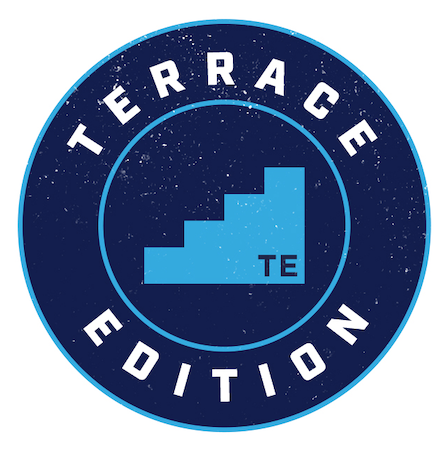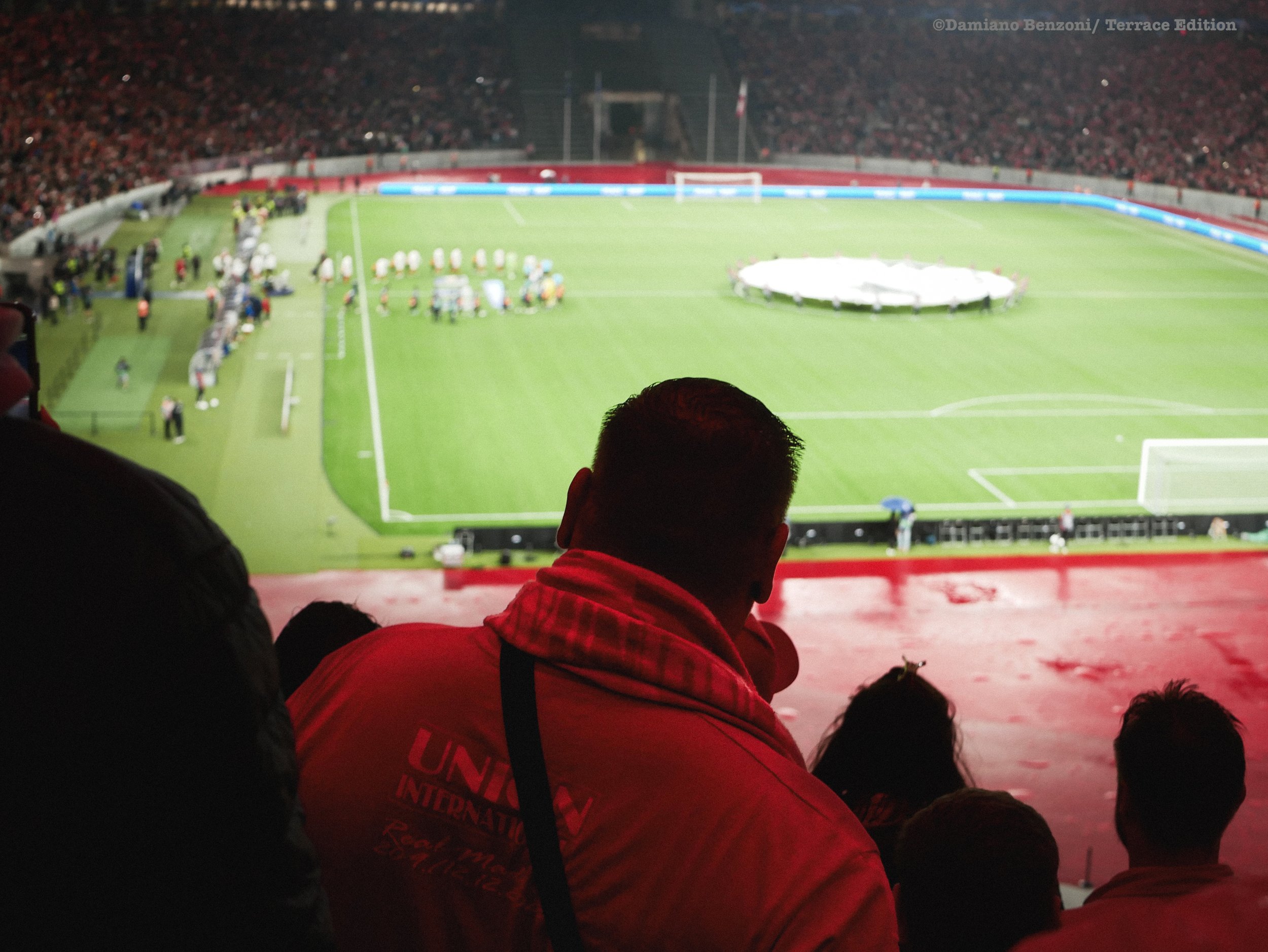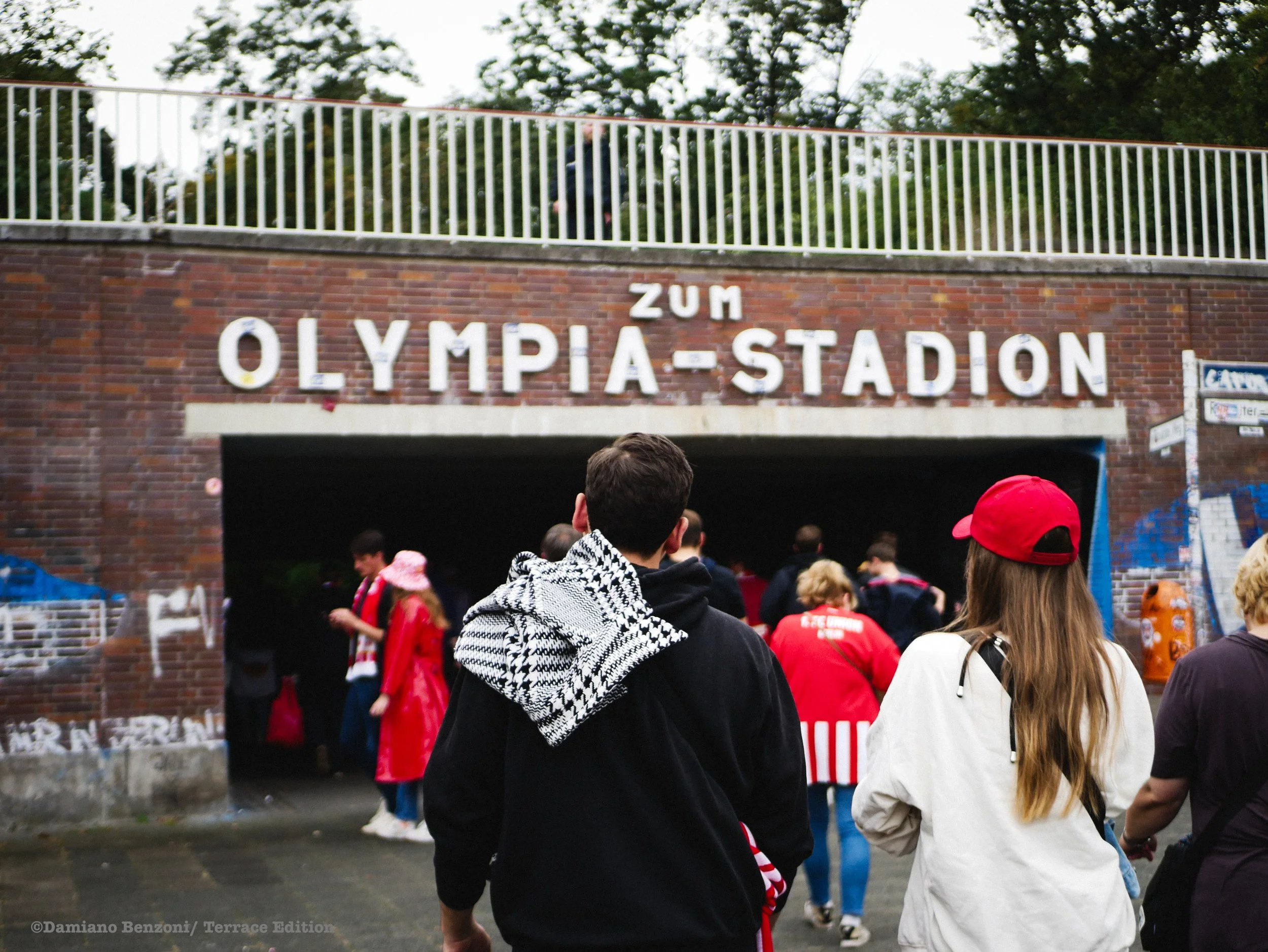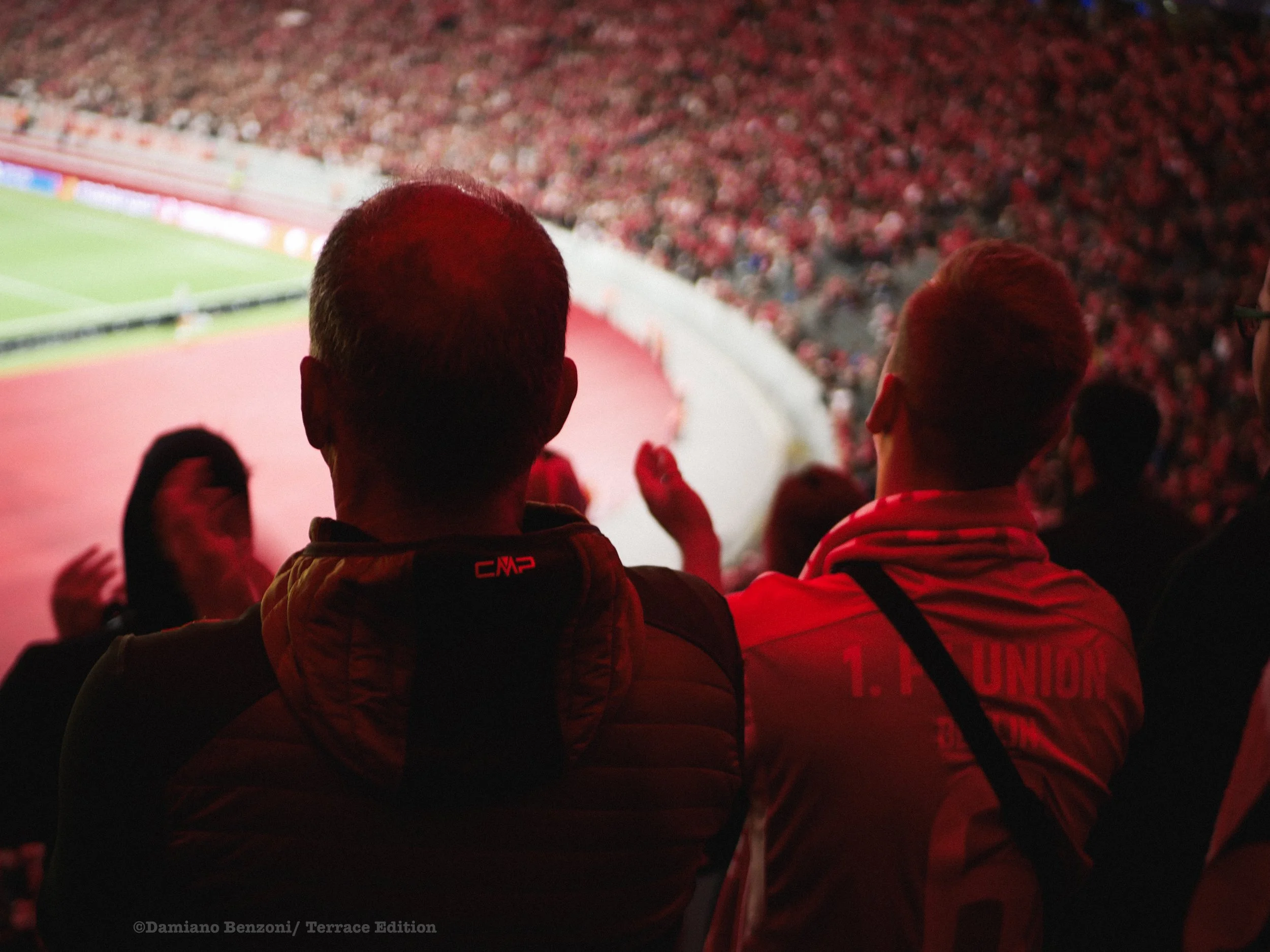paint it red

Words: Damiano Benzoni
Images: Damiano Benzoni
There was a brief stroll through the woods. There were the buskers singing “Eisern Union” out of the S-Bahn station.
There were the usual friends and faces. Scarves and jerseys and the whole stadium, everything was red.
There were the cries of “Fußballgott” after the name of each Union player. There was the Nina Hagen anthem, as ever, and the jangling of keys before a corner was taken, the usual chants and the established liturgy.
Everyone was standing, everyone was singing, everyone was clapping.
It was a home game like any other. Or was it?
Well, the woods weren’t exactly the same. The S-Bahn station was almost at the other end of the S3 line. And there were far many more people than you would usually see at an Union game. The pitch felt further away. The sound took longer to travel, surprising some sections of fans, off tempo on their chanting.
Everyone was standing, but everyone had a fixed seat. Most looked lost and disoriented looking for toilets or for a beer stall, cursing “Scheiß Olympiastadion”. And the venue was an emphatic building whose construction had been ordered by Hitler, and not the cosy home in the woods which many Unioners had helped redevelop.
It was the biggest game Union Berlin had ever played, their Champions League home debut, and it felt at the same time ecstatic and uneasy. A lone banner read “We miss the Alte Försterei as the air to breathe”, and the first chant of the evening was the name of their true home stadium, 23 kms away in the south-eastern tip of Berlin.
©Damiano Benzoni/ Terrace Edition. 1. FC Union Berlin vs Sporting Clube de Braga. Olympiastadion.
Even if technically UEFA had allowed Champions League football to be played at the Alte Försterei under certain conditions, the management of Union Berlin had a tough decision in front of them.
The dream would be to bring UCL football to their home. A home that is very much integral to what Union is about: the standing places, the absence of intrusive advertisement, the pressure-cooker atmosphere and, ultimately, the very soul of the club.
On the other hand, the stringent prerequisites a club needs to tick off to ensure their stadium is deemed fit to host a Champions League game wouldn’t be easily met. The capacity would have been reduced from an already tight 22 thousand, against a rapidly growing membership of more than 50 thousand.
Could the club deny many of its members the opportunity to watch the biggest games in their history?
This was what was at stake: The ever growing question among Unioners since the rise of the club ignited. Will we be able to remain faithful to ourselves? Or will we lose our own identity as we become a club for the whole of Berlin and a Champions League fixture?
Rivals revelled in this. Hertha’s Ostkurve teased Unioners with a banner: “Only at your house you don’t play, can you still look at yourself in the mirror?”.
The day after, nobody was talking about Union captain Sheraldo Becker’s glorious brace under the pouring deluge, but rather about the banners displayed at the beginning of the game, critiquing the UEFA stadium prerequisites and attacking the European football body for its business-centred outlook.
Many ultras decided not to attend the game, supporting instead Union’s under-19 at the Alte Försterei. Some booed the Champions League anthem.
Then it all came together as Braga crowned their comeback, condemning Union to a heart-breaking 94th minute loss, the second injury-time defeat in as many games in the UCL. If that may signal a lack of European experience, as a response Union fans turned to the basics. To what they know best: supporting the team.
They stayed, they clapped and sang, they cheered far after the final whistle, expressing their pride for their boys and for their ability to rise up to the occasion.
Then they hopped on the S-Bahn and travelled back home, wearing their scarves proudly in neighbourhoods where they wouldn’t normally display them, ripping off Hertha stickers from the blue-and-white walls of West Berlin, making their call - “Eisern Union!” - resound in what is normally not their territory and savouring a special night that just refused to wither away, right after the game.
©Damiano Benzoni/ Terrace Edition. 1. FC Union Berlin vs Sporting Clube de Braga. Olympiastadion.
©Damiano Benzoni/ Terrace Edition. 1. FC Union Berlin vs Sporting Clube de Braga. Olympiastadion.
©Damiano Benzoni/ Terrace Edition. 1. FC Union Berlin vs Sporting Clube de Braga. Olympiastadion.
©Damiano Benzoni/ Terrace Edition. 1. FC Union Berlin vs Sporting Clube de Braga. Olympiastadion.
©Damiano Benzoni/ Terrace Edition. 1. FC Union Berlin vs Sporting Clube de Braga. Olympiastadion.
©Damiano Benzoni/ Terrace Edition. 1. FC Union Berlin vs Sporting Clube de Braga. Olympiastadion.
©Damiano Benzoni/ Terrace Edition. 1. FC Union Berlin vs Sporting Clube de Braga. Olympiastadion.
You can find Damiano on Twitter and Instagram: @dinamobabel













